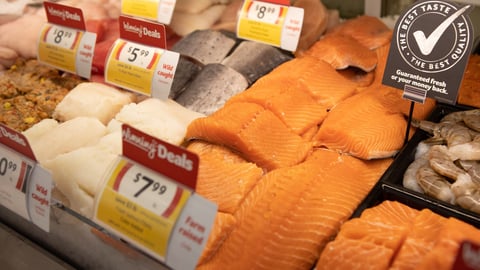Grocery Shopping Stays Popular, But Prices Remain A Concern
Grocery consumers have been on a roller coaster ride since the start of the 2020s, but challenges, including a global pandemic and inflation, have done little to dampen their shopping habits, according to new data from FMI — The Food Industry Association.
The U.S. Grocery Shopper Trends: The Logic of Food Shopping report from FMI revealed that consumers continue to have a positive opinion of grocery stores, but have significant budgetary concerns as it relates to inflation and the impact of tariffs.
Consumers consider the task of grocery shopping largely positive, with FMI’s U.S. Grocery Shopper Sentiment Index, which accounts for shoppers’ collective feelings and attitudes about grocery shopping and how they feel about their current primary store, up to 72 out of 100.
“Despite the economic pressures they face, consumers overwhelmingly tell us they enjoy grocery shopping and that they are willing and able to budget in order to ‘eat well’ based on their specific values and needs,” said Leslie G. Sarasin, president and CEO of FMI. “While individual needs vary, by and large, most shoppers prioritize four things when shopping for food: health, entertainment, exploration, and convenience. Satisfying these key needs is important to shoppers, and they tailor their overall budgets and food spending behaviors to ensure they ‘eat well.’”
The positive feelings consumers have about the task of grocery shopping are tempered somewhat by concerns about food prices. The FMI survey found that 49% of consumers are “very concerned” or “extremely concerned” about tariffs and their impact on food prices. Also, 68% of consumers are “very concerned” or “extremely concerned” about rising food prices.
The focus on price is understandable given the rising cost of consumers’ weekly grocery bills over the past decade. The average weekly spend for groceries in 2025 is $170, up from $101 in 2015, and up $28 from 2020.
With prices top of mind, consumers are budgeting for food more frequently than other expenses; 34% weekly or 29% monthly. Shoppers are using simple, flexible approaches to budgeting that provide them with a sense of security and control while giving them latitude to pursue aspirations for “eating well.”
The vast majority of shoppers (86%) say they at least “don’t mind budgeting,” with 44% saying they like or love it. While food and housing make up the largest portions of most household budgets, shoppers are more inclined to reduce spending on leisure, consumer items, services, and dining out before scaling back on groceries.
The FMI report also found that most consumers (75%) feel in control of their grocery spending. While strong, that figure is down 10% from September 2024.
Shoppers are using various strategies to stretch their food budgets further. Traditional methods such as list-making (83%), taking household inventory (79%), meal planning (69%), and seeking out coupons or discounts (60%) remain the most common.




